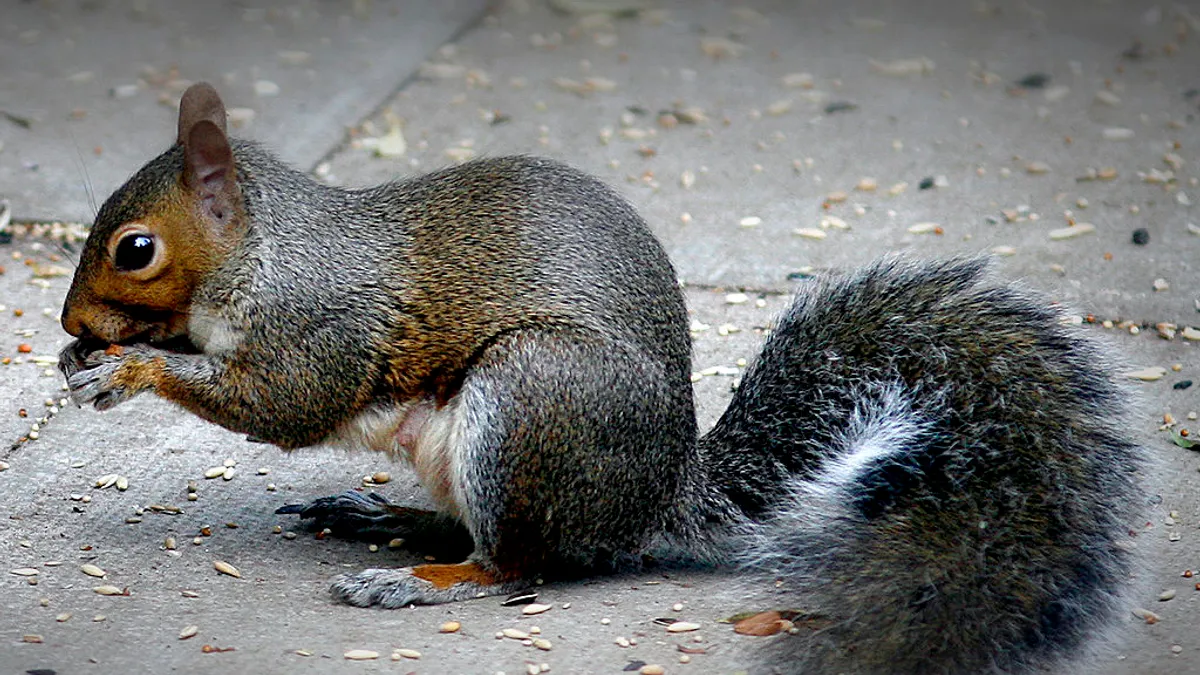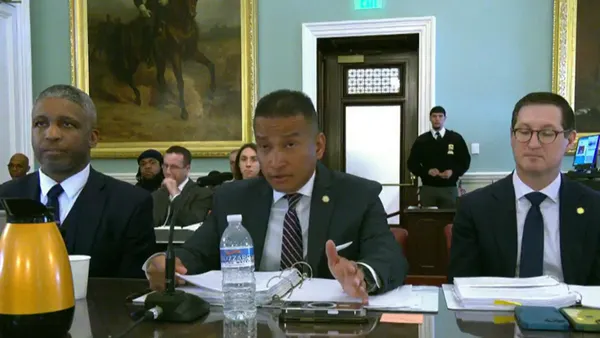UPDATE: The Chicago City Council's Finance Committee continued the discussion of deterring rats and squirrels from chewing through trash carts, an ongoing issue for the city that has become a personal mission for one elected official in particular, as reported by the Chicago Tribune.
Alderman Howard Brookins, who raised the issue at a council hearing last fall, had a squirrel-related accident while biking, which he attributed to "revenge" at the time. Brookins flipped over the bike's handlebars after a squirrel got caught in his front wheel, breaking his nose and losing teeth in the process.
Since then, Brookins has been vocal about finding a way to save the city money on replacing an average of 60,000 carts per year. About 37% of those requests are related to damage, often from rodents. Ideas proposed at the hearing included mesh barriers inside carts, or using other deterrents such as hot sauce or coyote urine. The potential costs for installing mesh or other physical upgrades would range from $10 to $40 per cart, which city sanitation officials indicated would be too high for carts that currently cost $46.79 apiece. Brookins hopes to get funding for some type of solution in the city's 2018 budget.
Dive Brief:
- Chicago has 1.4 million black and blue collection carts in circulation, of which 11% have been damaged from "aggressive squirrels" eating through them, as reported by the Chicago Sun Times.
- In a recent city council budget hearing, Alderman Howard Brookins asked the executive director of the city's animal control commission what could be done about the issue, which has cost the city $300,000 in repairs so far.
- Cart repair and replacement is one of the top calls to Chicago's 311 service number and the city expects to spend $1 million on carts in 2017.
Dive Insight:
While the squirrel discussion reportedly elicited some laughs during the hearing, these Chicago squirrels are becoming an expensive problem. Brookins said some of his constituents reported their cans being gnawed through within days of replacement. In a city that is still working to get its recycling program up to full speed due to high contamination rates, these additional costs aren't helpful.
Keeping animals out of carts is an expensive factor that many municipalities have been dealing with lately. Baltimore spent about $9 million to give all residents new carts earlier this year due in part to issues with rats. Multiple states have also been working to keep bears out by purchasing new animal-resistant carts and issuing citations to residents who don't comply with local regulations.
As these squirrels have shown it may be hard to make any cart truly animal-resistant, but the alterative of bags piled up curbside is worse. Especially in large coastal cities such as New York this can attract hordes of rats. Limiting the amount of organic waste in bags or carts would make them less attractive to these animals though that is of course easier said than done.














